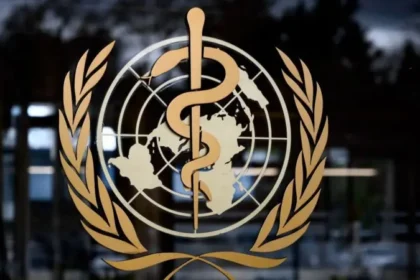RASC News Agency: In a decisive humanitarian operation, the German government has successfully evacuated 138 Afghanistanis from Islamabad to German soil, shielding them from the escalating threat of persecution under the Taliban regime. The evacuees comprising women, men, and children had been trapped in legal and political limbo in Pakistan, which is currently pursuing a harsh campaign to deport more than 1.3 million undocumented Afghanistanis by the end of March. This evacuation was executed via a chartered flight organized by Berlin, taking off from Islamabad on the evening of April 16 and landing in Leipzig/Halle Airport after several hours. According to the German Interior Ministry, the passengers included 76 women, 62 men, and 45 children and youth, all of whom had received final admission approvals and passed rigorous security screenings prior to departure.
The German initiative comes amid mounting international concern over Pakistan’s policy of forced repatriations. Human rights organizations, including Human Rights Watch, have warned that returning Afghanistanis to Taliban-controlled territories puts them at grave risk of imprisonment, torture, and systemic discrimination. The United Nations High Commissioner for Refugees (UNHCR) has echoed these warnings, highlighting that since September 15, 2023, more than 843,000 individuals either forcibly expelled or pressured into “voluntary” return have crossed back into Afghanistan, many with no place to go and no resources to survive. Among those awaiting similar humanitarian evacuations are over 2,600 high-risk Afghanistanis stranded in Pakistan, including women’s rights defenders, journalists, and former civil servants individuals particularly vulnerable under Taliban rule. The situation is especially dire for more than 50 female activists who have been arrested and threatened with imminent deportation, facing the terrifying possibility of detention or execution upon return to Afghanistan.
Many of the returnees, particularly those born and raised in exile, are re-entering a country they do not know, stripped of their possessions and plunged into severe humanitarian deprivation. Hunger, homelessness, and lack of access to basic medical services are widespread. The Taliban’s repressive governance, which has intensified since their violent takeover in August 2021, has transformed Afghanistan into a state of systematic fear. The regime has outlawed secondary and higher education for girls, purged women from public life, crushed independent journalism, and criminalized dissent. Arbitrary detentions, legal discrimination, and widespread intimidation have become institutional norms.
Despite this, the Pakistani government has announced plans to deport all undocumented Afghanistanis by March 2025, a move that threatens to displace more than 850,000 people. Reports indicate that since the start of 2025, thousands have already been forcibly relocated from tribal and border areas such as Khyber and Peshawar to Afghanistan, in many cases without due process or access to humanitarian assistance. International agencies, including UNHCR and the International Organization for Migration (IOM), have issued urgent warnings against this campaign, urging Islamabad to suspend deportations and maintain humanitarian corridors for those in need of refuge. The scale of the crisis is staggering. Between September 15, 2023, and March 9, 2025, UNHCR data shows that at least 843,400 Afghanistanis have returned to Afghanistan under varying degrees of coercion, including those stripped of official refugee cards. Many now face starvation, violence, and statelessness.
The Taliban’s draconian policies especially those targeting women, ethnic minorities, and civil society have not only exacerbated the domestic humanitarian crisis but have also disrupted regional diplomacy and undermined international engagement. By abandoning all pretense of respecting basic human rights and engaging in what some experts describe as de facto ethnic cleansing, the Taliban regime has cemented its image as an authoritarian entity divorced from international norms. In light of these alarming developments, the global community must take decisive and unified action. Governments must expand humanitarian corridors and resettlement programs for at-risk Afghanistanis. The Taliban must face coordinated international pressure through sanctions, diplomatic isolation, and conditional aid to uphold basic rights and ensure the safety of returnees. Meanwhile, international aid agencies must be empowered with increased resources to respond to the growing humanitarian fallout on both sides of the Afghanistan-Pakistan border.
Only through strategic humanitarian and diplomatic synergy can the world hope to prevent a larger-scale catastrophe and secure the possibility of a dignified, voluntary, and safe return for millions of displaced Afghanistanis.






